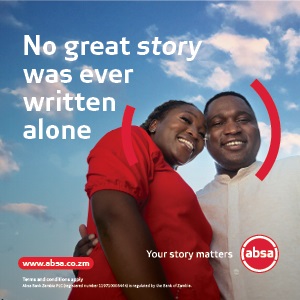
ActionAid
ActionAid is a global federation working for a world free from poverty and injustice. We want to see a just, fair and sustainable world, in which everybody enjoys the right to a life of dignity, and freedom from poverty and oppression. We work to achieve social justice and gender equality, and to eradicate poverty. All our work is underpinned by a set of feminist leadership principles:
self-awareness, self-care and caring for others, dismantling bias, inclusion, sharing power, responsible & transparent use of power, accountable collaboration, respectful feedback, courage and zero tolerance for harassment, exploitation and abuse.
1.0 POSITION: Monitoring, Evaluation and Learning (MEL) Officer – Partnership for Social Accountability (PSA) Alliance.
Duration : 24 months
Location: Johannesburg, Harare, Lusaka.
1.1. PURPOSE OF THE ROLE
The Partnership for Social Accountability (PSA) Alliance is implementing the project ‘Strengthening Social Accountability and Oversight in Health and Agriculture in Southern Africa’, supported by the Swiss Agency for Development and Cooperation (SDC). The PSA Alliance is a consortium of four organizations:
ActionAid International (AAI), Eastern and Southern Africa Small Scale Farmers’ Forum (ESAFF), SAfAIDS, and Public Service Accountability Monitor (PSAM) of Rhodes University. Phase 1 of the project ran from 2016 to 2019, and Phase 2 of the project will run until December 2024. The project aims to improve accountability and gender-responsiveness in public resource management, particularly in the areas of HIV/SRH services for adolescents and youth and agricultural services for smallholder farmers, contributing to the realization of selected SADC regional commitments across five countries (Malawi, Mozambique, Tanzania, Zambia and Zimbabwe. From July 2023 –December 2024, the project will focus its national and district level work on Zambia and Zimbabwe).
The Consortium Project MEL Officer will be responsible for effective planning, implementation, learning and keeping track of and reporting on project activities, in line with the project costed work plan and log-frame.
S/he will provide leadership and coordinate on all MEL processes and manage the evaluation, analysis and utilization data management for the project. S/he will ensure effective planning, reporting and monitoring and evaluation at country and regional levels; facilitate effective learning and communication of project impact and ensure compliance to contract rules and regulations. In addition, s/he will support the Consortium Project Manager in providing administrative and technical programme support, engagement with external
stakeholders as well as support in managing relationships with Consortium members.
The Consortium Project MEL Officer reports to the Consortium Project Manager, and will work closely with the Consortium Project Accountant, National Project Managers and Consortium members, towards effective delivery on project activities.
Support the Project Management
Establish and maintain systems for effective functioning of the project including planning, monitoring, evaluation, learning, reporting and managing communications between all consortium and associate members;
- Be the central point of contact with Associate members in the five (5) countries, mainly through, but not limited to, the National Project Managers;
- Support National Project Mangers on workplans, log-frames, data management, reporting, quality assurance and stakeholder engagement;
- Facilitate effective coordination, collaboration and sharing between and amongst Consortium Members;
- Participate in regular planning and progress review meetings with the Consortium Project Manager, and with the project team;
- Ensure that crosscutting issues (gender, human rights, HIV, governance) are prioritised and monitored throughout the project period;
- Seek necessary approvals for project implementation shifts, unplanned expenditure, travel and other related project definitions;
- Coordinate operational monitoring of project activities including organising and convening monthly progress meetings of the Project Management Unit (PMU);
- Ensure that countries remain within the defines of the project workplan and budget, and fiscal and operational compliance is adhered to;
- Organise and facilitate project events and activities as per workplan. This includes active involvement in planning and facilitating or cofacilitating at meetings, learning events, workshop, training courses, and other related project platforms;
- Ensuring that the Consortium Members, SDC and other stakeholders are kept informed of progress and key issues; and
- Act on behalf of the Consortium Project Manager as required
1.2 SPECIFIC DUTIES
Finalise the monitoring, evaluation and learning (MEL) framework for the project to ensure the project has strong MEL and can measure progress against the project Theory of Change and targets in line with the project log frame;
- Enhance the alignment of the Project MEL framework and nested Theory of Change to the current AAI MEL approach and Theory of Change;
- Liaise with national project managers and other internal stakeholders to actively seek their input and ownership of all MEL tools and processes;
- Lead the implementation and on-going development of MEL processes, systems and guidelines across the project;
- Ensure the project MEL guidelines and tools are up to date and effectively used by all countries and, where this is not the case, provide support to country offices to improve implementation;
- Gather, consolidate and submit required project data to the consortium project manager on a regular basis and promote programme and organisational wide knowledge management, learning and data utilisation;
- Put in place effective learning platforms to ensure that National Project Managers and Officers, and Consortium members learn from their programming experiences and use these to make learning-based decisions;
- Be the focal point for data quality control and assurance by reviewing partner reports and ensuring their compliance with contract requirements and submitting the final reports to the Consortium Steering Committee and to SDC;
- Responsible for tracking what changes and how change happens, generating evidence to demonstrate structural shifts in power in the project areas. Support the use of this evidence to improve the programme/project strategies, showcase impact internally and externally;
- Responsible for applying the AAI Value for Money (VfM) approach to learn from and with people living in poverty about how the different elements of the project are contributing to change and how resources should be allocated across the programme;
- Draw strategic input from key project stakeholders, including technical and MEL advisors, as well as from external experts to continually improve processes;
- Ensure all monitoring, evaluation and research activities are conducted in line with agreed ethical principles, and consistently promote women’s rights and downwards accountability to beneficiaries;
- Support the Consortium Project Manager to conduct, commission and manage research and evaluation processes such as the midterm and end of project evaluation;
- Work in coordination with SAfAIDS and PSAM on capturing best practice and learning. Ensure that learning is documented, shared and utilized on a quarterly basis; and
- Produce internal and external communication materials, including project newsletter, website articles and social media posts.
1.3 MINIMUM REQUIREMENTS
- Educated to degree level in the fields of Social Science, Health, Development Studies, Human Rights, Governance or other relevant humanities.
- Strong communication and negotiation skills, with excellent written and
- Spoken English
1.4 ESSENTIAL KNOWLEDGE & SKILL
- Substantial experience in designing monitoring, evaluation and learning systems, Theory of Change, MEL tools and processes in an international development context
- Experience of providing leadership, support and guidance on monitoring, evaluation and learning across development programmes/projects
- Demonstratable experience and knowledge in the collection, consolidation and analysis of highly diverse data, including the use of both qualitative and quantitative methods.
- Ability to clearly communicate project information to diverse audiences through the production of well-written reports for donors, internal reports for project/peer learning, and external publicity materials.
- Project management experience within a regional or international agency, applying rights-based approaches;
- Comprehensive understanding of both policy issues and programme practice on social accountability, particularly public resource management.
- Adept skills in managing complex projects with a wide geographical scope requiring virtual collaboration.
- Applied knowledge of project cycle management including problem analysis, project design, financial planning and management, and monitoring and evaluation
- Strong networking/relationship-building skills to work well with and influence diverse stakeholders in a multi-cultural environment.
- Excellent problem-solving skills, resourcefulness to understand and synthesise diverging points of view and resolve conflicts without escalation.
- Team coordination skills, ability to negotiate, influence and facilitate activities with colleagues to get results without formal line management authority.
- Energetic, enthusiastic and interested in learning within a political, changing and diverse work environment.
- Very good communication skills (verbal and written) to work well in a regional and multi-cultural context.
1.5 OTHER REQUISITE COMPETENCES
- Expertise in or understanding of health (SRH and HIV) and/or agriculture (food security) sectors in Southern Africa
- Experience in working effectively with civil society in Southern Africa
- Understanding of engagement with parliamentarians and policy makers in Southern Africa.
- Language skills relevant to countries involved – Mozambique, Zambia,
APPLICATION: Please click on the “apply” button to start the application process. Applications close on 3 March 2023 at 23:59GMT. Please upload an up-to-date CV and a cover letter, clearly explaining your suitability against the essential criteria in the job profile.
To be considered for this role, you must be able to provide proof of eligibility to work in any of the mentioned locations at the time of appointment.
Kindly note that only shortlisted candidates will be contacted- usually within 2 weeks of the closing date.

